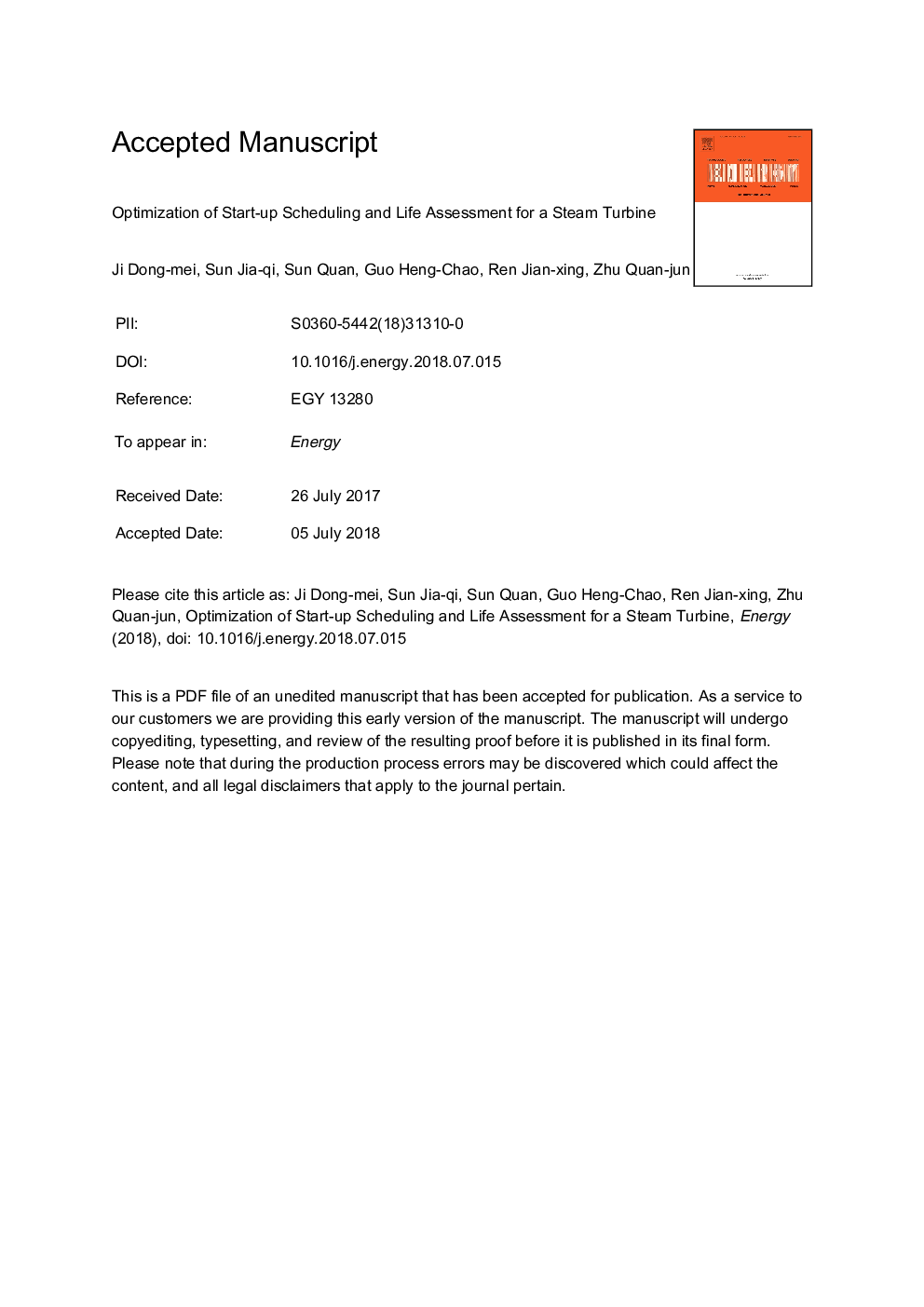| کد مقاله | کد نشریه | سال انتشار | مقاله انگلیسی | نسخه تمام متن |
|---|---|---|---|---|
| 8070935 | 1521390 | 2018 | 35 صفحه PDF | دانلود رایگان |
عنوان انگلیسی مقاله ISI
Optimization of start-up scheduling and life assessment for a steam turbine
ترجمه فارسی عنوان
بهینه سازی زمانبندی راه اندازی و ارزیابی زندگی برای یک توربین بخار
دانلود مقاله + سفارش ترجمه
دانلود مقاله ISI انگلیسی
رایگان برای ایرانیان
کلمات کلیدی
روتور توربین بخار، راه اندازی بهینه سازی، خستگی خستگی، مدل مکانیک آسیب مداوم غیر خطی، ارزیابی زندگی،
موضوعات مرتبط
مهندسی و علوم پایه
مهندسی انرژی
انرژی (عمومی)
چکیده انگلیسی
In order to meet the requirement of frequent start-stop of the units, it is significant to optimize the operation scheme of the unit. A novel optimized mathematical model of a steam turbine was proposed at a previous paper of this study's authors. In this study the supported vector machine (SVM) stress model of a 320â¯MW steam turbine was established based on 13 groups of start-up schemes. According to the novel optimized mathematical model and SVM stress model of the turbine, Genetic algorithm-particle swarm optimization was employed to search for the best values of the steam temperature rise rate. The optimization schedule can shorten the start-up time of 170â¯min in the premise of meeting the stress requirement. It is necessary to testify the feasibility of the optimized schedule, the fatigue, creep, and creep-fatigue life of the steam turbine rotor were analyzed by continuous damage mechanics (CDM) model. The results shown that the life assessment of the rotor from the nonlinear CDM is accordance with the bilinear failure criterion of ASME Section III, and the critical creep-fatigue damage of the rotor is 0.2083, and the life loss of the rotor after working 30 years under the optimized start-up schedule is 19.25%.
ناشر
Database: Elsevier - ScienceDirect (ساینس دایرکت)
Journal: Energy - Volume 160, 1 October 2018, Pages 19-32
Journal: Energy - Volume 160, 1 October 2018, Pages 19-32
نویسندگان
Ji Dong-mei, Sun Jia-qi, Sun Quan, Guo Heng-Chao, Ren Jian-xing, Zhu Quan-jun,
